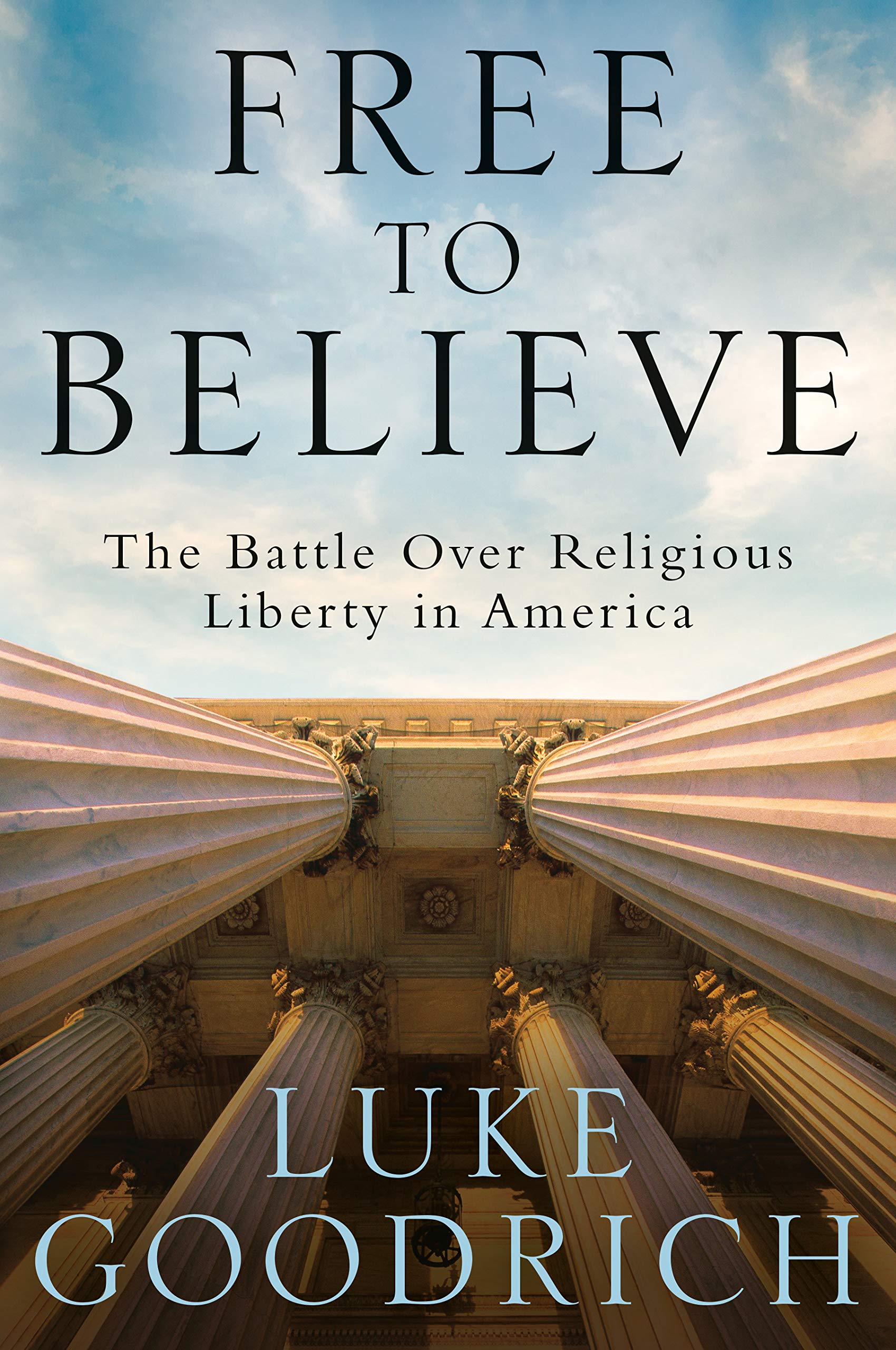
Free to Believe: The Battle over Religious Freedom in America
By Luke Goodrich
Read this book. Now.
No matter what your stance on the current debates about religious freedom in America (and to lesser extents, other Western countries), you need to read this book. Whether left, right, middle, or un-mappable in your beliefs, you likely have several wrong-headed ideas and under (or mis-) informed ideas.
Not that I think Luke Goodrich is right on everything here, but as a lawyer for the Becket Fund for Religious Liberty who has won several Supreme Court cases (most famously, the Hobby Lobby case), he is a voice you should know and understand.
Now, Goodrich does have a specific audience in mind, and you may not be part of it. He clearly aims the book at a conservative/orthodox (small “o”) Protestant/Evangelical Christian audience. However, there is plenty here for all sides, even if you don’t fall into that camp (and Latter-day Saints or “Mormons” come up quite often – as do Muslims, Hindus, Native Americans, and many others affected by these issues).
His main point is to clarify what is really at stake in these debates, and to get conservative Christians to reform their sometimes hypocritical behavior and clear up their mistaken beliefs.
For example, he talks about how religious liberty for all needs to be “for all” and not just a way to make America Christian again. Too many people use “religious freedom” as an excuse for Christian Triumphalism rather than truly allowing for broad based religious freedom (he occasionally talks about how some Christians want to deny religious freedom to Muslims, for example, which is too often a hypocritical stance).
On the other hand, some Christians have become defeatist, assume martyrdom is the future, and he feels they/we need to see there are reasons for hope.
Overall, his message is optimistic, but still realistic. Near the end, he has a chapter called “Let Go of Winning.” This does not mean “we shouldn’t try to win” but that we should stop expecting to win all the time. His set of practical steps includes: “want to win” but “expect suffering.” “Rejoice when [winning] comes” but “fear God, not men.” “Strive for peace . . . continue doing good . . . love our enemies” and “care for one another.” We should strive to win, but not necessarily expect to win. The real challenge is to be found right before God, not before earthly courts (though don’t give up on that either).
Goodrich knows a lot of people, on all sides of these issues, have incoherent/incompletely formed beliefs and unclear reasoning. His book is an excellent way to help clear those up, not matter how well formed and coherent you believe your stance is. Whatever you think/believe, he will challenge you – but more importantly, educate you and thus help you become a better, more informed person with clearer, more coherent and well-thought out stances on religious freedom.


Thank you for the review!
So religious freedom is the right to believe, and live how you want, but not the right to impose that understanding on others.
Is that what he says?
Read the book and find out for yourself.